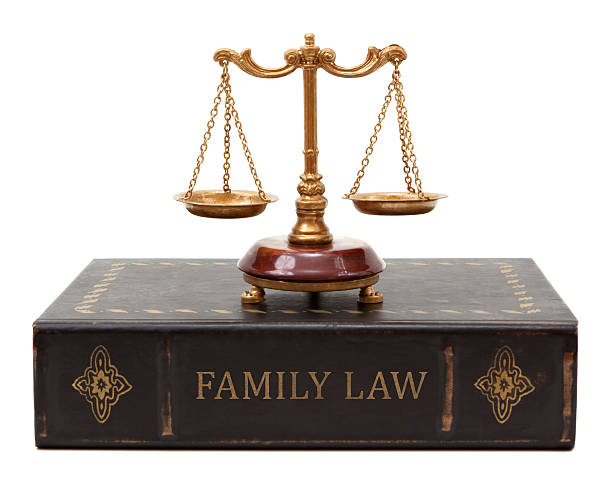In this blog we will discuss some key Sections under Part XV of the Family Law Act (1975) rights of legal practitioners. Part XV is titled “Miscellaneous” and consists of 19 Sections. In this article we to look at Sections 122 to Section 122B.
Section 122 of the Family Law Act (1975) outlines the rights of legal practitioners. Section 122 states that a person, who is under Part VIIIA of the Judiciary Act 1903, who is entitled to practise in any federal court as a barrister or as a solicitor, or both has the right to practise in any State court exercising jurisdiction under the Family Law Act.
Rights of Legal Practitioners and Section 122AAA
While Section 122 outlines the rights of legal practitioners to practice in other states, Section 122AAA highlights points in relation to the protection of registrars who are conducting conferences about property matters.
Section 122AAA states that in conducting a conference that:
- is with the parties to property settlement proceedings, and
- relates to the matters to which the proceedings relate;
A Registrar of a Family Court of a State has the same protection and immunity as a Judge of the Court has in performing the functions of a Judge. A Registrar is responsible for the administrative section of the Court. According to the Family Law Act, a Registrar:
- in relation to the Federal Circuit and Family Court of Australia (FCFOA Division 1), means a Registry Manager of the court,
- in relation to the FCFOA (Division 2), means a Registry Manager of the court, and
- in relation to any other court means the principal officer of the court or any other appropriate officer or staff member of the court.
Division 1 of the FCFOA deals with only family law matters, whereas Division 2 deals with both family law matters and general federal law matters. Moreover, the Section also states that it does not limit any other protection or immunity such a Registrar has in relation to such conferences or otherwise.

Section 122A: Arrests or Warrants Under This Act
In addition to rights of legal practitioners, we should also be aware of matters in relation to making arrests or warrants under the FLA. Section 122A is applicable to the following people who have authorisation under this Act to act as an Arrester to arrest another person:
- Marshal of the FCFOA (Division 1)
- Deputy Marshal of the FCFOA (Division 1)
- Sheriff of the FCFOA (Division 2)
- Deputy Sheriff of the FCFOA (Division 2)
- Sheriff of a court of state or territory,
- Deputy Sheriff of a court of state or territory,
- Police officer,
- APS employee in the Department that a Minister administering the Australian Border Force Act 2015 administers, and who is in the Australian Border Force
Use of Force
Furthermore, in relation to the use of force, Section 122A states that the arrester:
- must not use more force than is necessary and reasonable to make the arrest or prevent the arrestee from escaping, and they must also not subject the arrestee to greater indignity than is necessary;
- must not do anything that can cause death or grievous bodily harm to arrestee unless they believe it is necessary to protect life or prevent injury to another person, and
- if the arrestee is attempting to escape, the arrester must not do anything mentioned in point (2) above unless:
- the arrester reasonably believes that doing so is necessary to protect life or prevent injury to another,
- if the arrestee needs to surrender and the arrester reasonably believes that they cannot arrest them in any other way.
Informing About Grounds of Arrest
Moreover, in terms of informing the arrester about the grounds of arrests, Section 122A lists out the following points:
- the arrester must inform the arrestee of the grounds of arrest when arresting them,
- it will be sufficient if they inform the arrestee of the substance of the grounds, and they do not necessarily need to use technical language,
Point (1) mentioned above, does not apply if it is reasonable to assume, given the circumstances, that the arrestee knows the substance of grounds of arrest; or the arrestee’s actions make it impracticable for the arrester to inform them of the grounds of arrest.
Section 122AA: Powers to Enter and Search Premises for Making Arrests or Warrants
In understanding rights of legal practitioners, it is also necessary to know more about powers to enter/search premises, or stop conveyances, for making arrests or warrants under this Act. Conveyances includes vehicles, vessels or aircrafts; and premises includes a place.
Powers to Enter Premises:
- If the arrester reasonably believes the arrestee is on premises, they may enter the premises, using such force as is necessary and reasonable in the circumstances, at any time of the day or night for the purpose of searching the premises for the arrestee or arresting the arrestee.
- But, the arrester must not enter a dwelling house between 9pm one day and 6am the next day unless he or she reasonably believes that it would not be practicable to arrest the arrestee there or elsewhere at another time.
Powers to Stop and Detain Conveyances:
It is stated that, If the arrester may enter and search a conveyance, the arrester may stop and detain the conveyance. But, there are certain rules about stopping, detaining, entering and searching conveyances, given as follows:
The arrester:
- may use such assistance as is necessary,
- must search the conveyance in a public place or in some other place to which members of public have access,
- must not detain the conveyance for longer than is necessary and reasonable to search it, and
- may use force as is necessary and reasonable in the circumstances but must not damage the conveyance by forcing open any part unless there are some exceptional circumstances.
Section 122B: Arrangement with States and Territories
Section 122B of the Family Law Act 1975 (Cth) provides for arrangements between the Commonwealth and the States/ Territories. It states that the Governor-General may make an arrangement with the relevant authority of an Australian State or internal Territory. This is for the performance by an officer of the State or Territory of a function under this Act.
It further states that under this Section, “officer” refers to the holder of a judicial office. Moreover, “relevant authority” could mean the following:
- in relation to the State – the Government of the State,
- in relation to the Australian Capital Territory (ACT) – the Chief Minister for the ACT, or
- in relation to the Northern Territory (NT) – the Administrator of the NT

Seek Legal Advice from Family Lawyers
Click here to read about other Sections of the Family Law Act. If you are dealing with a family law case, you should seek advice from leading family law solicitors. Contact our team today.
